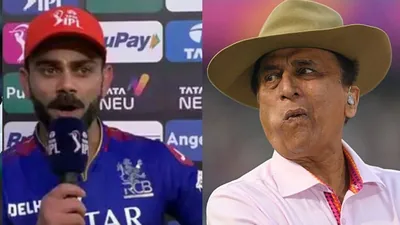Performers in the public eye, no matter in which creative sphere, must have a certain pride. A self-defined standard they have to meet. Expectations of themselves they must fulfil. It’s what drives them, it’s what gets their juices flowing. A positive ego, if you like.
Top performers are their worst critics. They demand of themselves standards of excellence beyond the imagination of even the very good. Only they know if they have met those standards. Decades back, Sachin Tendulkar was asked how he met the burden of expectations of his millions of fans. His paraphrased reply was revealing: ‘More than anyone else’s, I try to meet my own expectations.’ Sensible, because it is impossible to meet everyone’s expectations, especially when they revolve around delivering the moon.
Few professional sportspersons are under greater pressure to deliver than India’s cricketers. In a game of failures, failure isn’t quite an option. ‘Failure’ is defined amorphously; a fifty by Tendulkar was often considered not enough. Tendulkar, like many other stalwarts of his generation, had the equanimity to steer clear of being sucked into defending himself. That’s a trend that has rapidly gone out the window.
So now, we have players asking those who question their performance(s) how much cricket the questioners have played. ‘How many matches?’ they snigger, suggesting that unless one has played cricket competitively, they have no right to criticise. Or even debate. That question hardly surfaces when they are praised, even if the ones praising have also not played any cricket. Divine right to be praised?
One of the favourite terms to have made its way into the lexicon of Indian cricket is ‘outside noise’. Evidently, it roughly translates to any comment/remark/question that stems from beyond the team cocoon, from outside the dressing-room or the dugout, and is therefore not worth wasting time on. Until not long back, that ‘outside noise’ was restricted to the musings of the media corps. Now, even television commentators, several of whom have a staggering volume of work as international superstars, have been lumped into the larger ‘outside noise-making community‘.
For me, it’s about winning games for the team and there’s a reason why you’ve done it for 15 years,” Kohli had countered criticism of that knock after making 70 not out off 44 deliveries in his next knock. “I’m not quite sure that if you haven’t been in that situation yourself, to sit and talk about the game from the box…” Hmm.
If ‘outside noise’ is as irrelevant as Kohli, like some other players of his generation, would have us believe, why react to it? If it doesn’t merit consideration, why get affected by it? And if it is so outside, why even listen to it? After all, there is enough ‘inside noise’ to keep one happy, right? But if one is touched to the quick by this ‘outside noise’, there might, just might, be some merit to it.
Gavaskar’s job, like those of his fellow commentators/analysts, is not to just describe what’s happening on the ground. The little big man doesn’t need a certificate from anyone when it comes to his knowledge and understanding of the sport – he has been intricately involved with senior cricket at the highest level for more than 50 years. Like all other human beings, he has his likes and dislikes, but the professional in him hasn’t allowed biases to cloud his analyses; within the commentary set-up, he isn’t in a minority when it comes to this aspect, but he won’t hype people up and look for positives when few exist just because it is the ‘done thing’. Just as Kohli is doing his job on the field, Gavaskar is doing it off the park, after having been there and done it all in the middle. If he is ‘outside noise’, well…
